Pregnancy causes many changes in the mother’s body, including changes in the mouth and teeth. Changing the number of hormones makes the mouth more vulnerable to plaque and bacteria, two factors that make the gums sensitive during pregnancy. Tooth decay is more likely to occur during pregnancy, and like any other complication during pregnancy, what affects the mother affects the fetus. That is why mothers should be more concerned about oral hygiene than ever before. Prevention of gum disease is also very important because gum disease during pregnancy increases the risk of premature birth or death of the baby. Some women are also concerned about the effect of face and mouth photography on the fetus. However, in specialized orthodontic clinics, there are special protective devices that are placed on a woman’s abdomen during radiography so that the fetus is not exposed to radiation.
The effects of pregnancy on oral health
Complications of pregnancy for the mouth and teeth include the following:
Gum Infection: This condition is more likely to occur in the second trimester of pregnancy. The gums become swollen and tender, and there may be some bleeding gums, especially when brushing and flossing.
Undiagnosed gum disease: Although pregnancy does not lead to gum disease, pregnancy exacerbates untreated gum disease.
Pregnancy tumors: Overgrowth of tissue in the gum area is usually seen in the second trimester. Doctors suspect that plaque buildup may be the cause of these noncancerous tumors. These appendages bleed easily and look like raspberries. Pregnancy tumors usually disappear after delivery.
Plaque formation and mass: Pregnancy makes mothers more prone to plaque formation, and plaque buildup, in turn, leads to gum disease. Hormones, especially estrogen and progesterone, are the main cause of plaque buildup. Plaque buildup is not necessarily due to an increase in plaque in the mouth, but rather to the fact that the body cannot deal with plaque as easily and quickly as it used to. That is why oral hygiene is so important during pregnancy. If the plaque is not removed from the tooth, gum disease will develop, and if the mother already has gum disease but does not notice the disease because it is painless, this untreated complication will worsen during pregnancy. The dentist can remove plaque from the teeth by scaling so that the pregnant mother can go through the gum disease without enduring it.
Oral health in pregnancy
We advise pregnant women that whenever they visit the dentist during these nine months, be sure to inform the dentist that you are pregnant so that they can enjoy special treatments during pregnancy and the dentist must use more caution and care. If an x-ray of the tooth is needed for emergency reasons or to diagnose a dental problem, the dentist will take all necessary precautions to protect the mother and fetus. The dentist uses a lead apron and thyroid necklace to protect the abdomen, thyroid and other parts of the body.
Tooth extraction during pregnancy should be done with caution so that the baby is not harmed in the slightest in the mother’s womb. Therefore, dentists do not usually brush their teeth during pregnancy. However, if the tooth infection is severe and incurable and there is a possibility of the infection spreading, the dentist recommends tooth extraction. The dentist has a special program for tooth extraction in each trimester of pregnancy:
First trimester: Fetal organs are formed in the first trimester. As a result, if the mother is anxious and worried when pulling a tooth, the fetus will be very vulnerable to defects in the formation of vital organs. For this reason, dentists generally do not extract teeth in the first trimester.
Second trimester: The fetus is growing during this period, so dentists consider this period to be a good time to extract teeth and perform other dental treatments.
Third trimester: The expectant mother cannot easily lie on a dental chair for long periods of time. In addition, bleeding is more likely to occur during tooth extraction and may be dangerous for the mother.
Infected or decayed teeth need prompt treatment. Root canal denervation is one of the most common treatments for this condition, in which the pulp under the infected tooth is removed before the infection spreads to the periapical area. Because improper oral position may harm the fetus, denervation should be performed if necessary. Neurosurgery is often necessary therapy and benefits the mother and fetus. Complications are as likely to occur after denervation as in any other treatment, although denervation carries the least risk to both mother and fetus.
There is nothing wrong with starting an orthodontic treatment or continuing treatment during pregnancy. The mother should tell the orthodontist if she is pregnant or planning to become pregnant. Pregnant women sometimes gain weight and change the size of their face or mouth. In this case, the dentist performs a new molding of the mouth and teeth, then adjusts the invisible orthodontic plaque (Invisalign) and resizes it to make sure the orthodontic appliances are working properly. In addition, the time between orthodontic sessions is shortened to adjust metal orthodontic wires or lingual orthodontic appliances with changes in body weight.
The best way to take care of your mouth during pregnancy is like any other stage of life. Teeth should be brushed twice a day, flossed once, and seen by a dentist regularly.
Brush your teeth with a fluoride toothpaste at least twice a day. Brushing three times a day helps fight plaque.
Floss between your teeth every day.
See your dentist for scaling and regular checkups.
Using an antimicrobial mouthwash helps remove plaque.
If you suffer from morning sickness and vomiting, rinse your mouth with a solution of a teaspoon of baking soda and water.
Eat healthy foods for the gums that contain nutrients such as calcium, B12, and vitamin C.



